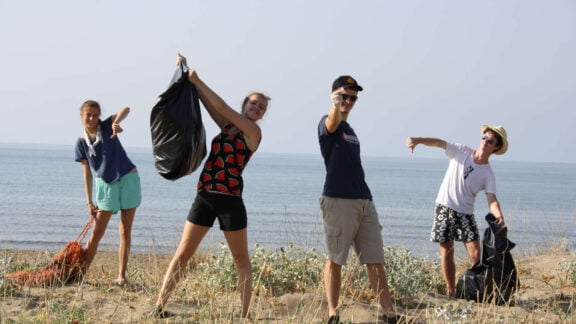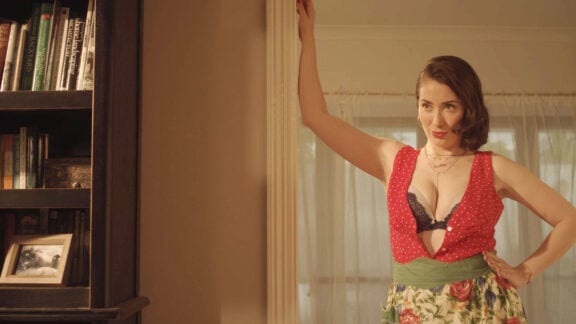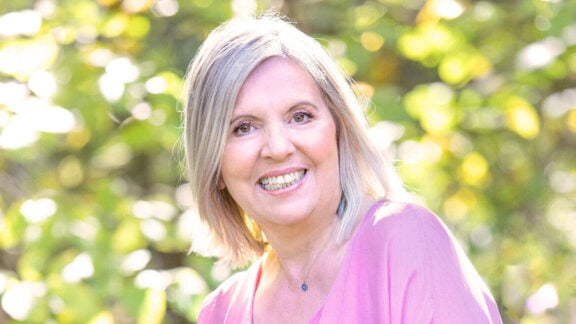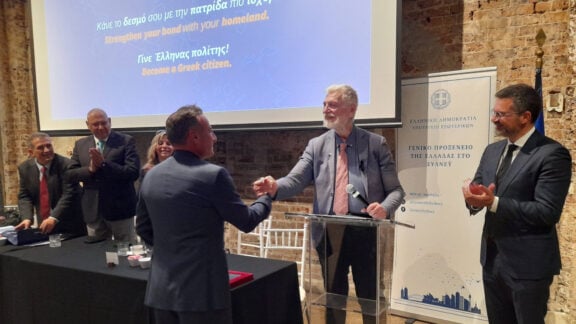The findings of the Productivity Commission report into aged care were released this week.
Financial assistance, training for staff, more home based aged-care services, the needs of ethno-specific residential homes and ways to meet those needs, were some of the recommendations made by the commission.
The recommendations that were made will now go through further consultation and the Federal Government will soon have the laborious task of deciding whether or not to take them on board.
Aged-care providers want the government to quickly adopt the Productivity Commission’s reforms so the industry can fund the 82,000 new beds that would be required by 2020.
But, do the findings reflect what is needed for our ageing community, particularly the ageing Greek community?
We have to act now
Penni Michael, CEO of Fronditha Care, told Neos Kosmos the findings are, “well and truly overdue.”
She said that although the industry has been calling for this change for over ten years, “there seems to be more acknowledgements of the special needs areas of culturally and linguistically diverse (CALD) groups.”
Fronditha Care has made written and verbal submission to the Productivity Commission. One outlined the difficulties of providing culturally appropriate services to people from a CALD background by just providing an interpreter.
“Secondly there are additional costs associated with providing CALD services and they’ve picked that up in their report. We detailed the costs, we demonstrated how it is more expensive for an ethno-specific provider than it is for mainstream providers,” Michael said.
Fronditha Care acknowledges they need specific funding to compensate this for their facility and staff. Michael said that the requirements of ethno-specific residential homes are totally different to mainstream ones.
“It’s around food costs, activities, sometimes you need additional staff because of the language skills. Increase interpreter/translation services which we bear the cost as well.” Fronditha Care train their staff in accredited Greek language courses and English too.
Financial pressures are a lot for families as they are expected to pay their own way and if they don’t have savings, a bond or an asset, it can be financially draining on a family.
This is true for Elias Tsigaras
Elias made the heartbreaking decision with his family to put his father in aged-care two-and-a-half years ago.
“The pressures on families are enormous. Not only the practical issues but the emotional and psychological issues of having to make the decision that you can’t realistically look after your own father or mother,” Elias told Neos Kosmos.
Elias’s father is in the St Albans Fronditha high-care facility. The decision to send his father to an ethno-specific residential facility was easy for the family. As his father was ageing he was reverting back to who he was when he arrived in Australia so it was paramount he was surrounded by people of his culture, ensuring his father wasn’t isolated in this time.
The financial stresses that Elias’s family faced when they decided to put their father in aged-care, were challenging, forcing him to brand the current system unfair.
“If all you’ve ever done is been a worker, worked on a production line, looked after your family to the best of your ability with limited English; at the end of the day is it fair if your home is going to get taken away from you because you have to go into a nursing home?” asks Elias, “well, I don’t think that’s fair.”
But Penni Michael doesn’t see anything particular in the report that will help families financially in these decisions. “For those people in low -care, they will not notice any difference, is my take on it,” said Michael.
“For those in high-care they will be asked to pay an accommodation bond for high-care but currently they are paying an accommodation charge. So it is not that largely different.”
The report mentions periodic payments and government funded schemes so no one will be denied access, but this is still not dissimilar to what we’ve got now.
Changes need to be made in other areas to make a real difference, to give the aged-care system a shake-up.
Michael told Neos Kosmos that there needs to be funds for training the workforce, more considered approaches on how we train people (not only academically but on the job too) and increased wage structures also.
She said there are some beneficial recommendations in the report.
“They are talking about eliminating the distinction between high and low-care residential beds, and we are keen to see the elimination of that in community care because it is an artificial barrier when we see someone who wants to remain in the home, move from personal care to nursing and complex care needs, but we’re not able to provide them because we’re not funded to do so,” said Michael.
In terms of where the government is at, it may be too early to talk about any of the changes that may or may not be implemented. “There is a real push to see changes,” said Michael, “it’s not just coming from one part of the world; it’s coming from all those people involved. It’s just bringing it up-to-date, it’s making it reflect what people currently want and it’s about moving artificial obstacles enabling people to age in peace.”
Making the decision to send a family member to an aged-care facility is never an easy one. In our culture it can be made harder with the expectation that we will always look after our loved ones regardless of their condition. But there are circumstances beyond our control when this is just not possible. Not only the emotional and psychological stress but the financial strain involved can take its toll on any family. Add to this equation the ABS projection that by 2056, 7.2 per cent of the population will be aged sixty five to eighty five years and it is more than likely that the times ahead will be very challenging for individuals, families and all governments.








